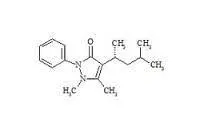- Afrikaans
- Albanian
- Amharic
- Arabic
- Armenian
- Azerbaijani
- Basque
- Belarusian
- Bengali
- Bosnian
- Bulgarian
- Catalan
- Cebuano
- Corsican
- Croatian
- Czech
- Danish
- Dutch
- English
- Esperanto
- Estonian
- Finnish
- French
- Frisian
- Galician
- Georgian
- German
- Greek
- Gujarati
- Haitian Creole
- hausa
- hawaiian
- Hebrew
- Hindi
- Miao
- Hungarian
- Icelandic
- igbo
- Indonesian
- irish
- Italian
- Japanese
- Javanese
- Kannada
- kazakh
- Khmer
- Rwandese
- Korean
- Kurdish
- Kyrgyz
- Lao
- Latin
- Latvian
- Lithuanian
- Luxembourgish
- Macedonian
- Malgashi
- Malay
- Malayalam
- Maltese
- Maori
- Marathi
- Mongolian
- Myanmar
- Nepali
- Norwegian
- Norwegian
- Occitan
- Pashto
- Persian
- Polish
- Portuguese
- Punjabi
- Romanian
- Russian
- Samoan
- Scottish Gaelic
- Serbian
- Sesotho
- Shona
- Sindhi
- Sinhala
- Slovak
- Slovenian
- Somali
- Spanish
- Sundanese
- Swahili
- Swedish
- Tagalog
- Tajik
- Tamil
- Tatar
- Telugu
- Thai
- Turkish
- Turkmen
- Ukrainian
- Urdu
- Uighur
- Uzbek
- Vietnamese
- Welsh
- Bantu
- Yiddish
- Yoruba
- Zulu
නොවැ. . 25, 2024 11:42 Back to list
Recommended Injectable Ivermectin Dosage Guidelines for Cattle Care and Management
Ivermectin Injectable Dosage for Cattle
Ivermectin is a widely used anthelmintic (dewormer) and ectoparasiticide that plays a crucial role in the health management of cattle. It is effective against a broad spectrum of parasites, including internal worms and external pests such as lice and mites. Proper dosage and administration are essential to ensure optimal efficacy and minimize the risks of resistance development.
Ivermectin Injectable Dosage for Cattle
Prior to administration, it is advisable to check the product label for specific instructions, as formulations may vary. The injectable form of ivermectin usually comes in concentrations that facilitate easy dosing. For instance, a common formulation is 1% solution, which means that each mL contains 10 mg of ivermectin. Understanding this concentration is crucial for correct dosage calculations.
ivermectin injectable dosage for cattle

Administration should ideally be done by a qualified veterinarian or a trained individual to ensure that proper techniques are followed. This includes preparing the injection site and using sterile equipment to prevent any potential infections. It is important to select the appropriate site for the injection; subcutaneous injections are typically made in the loose skin behind the ear or along the neck.
Furthermore, it is vital to consider the withdrawal period, which is the time that must elapse after treatment before the animal can be processed for meat or milk. For ivermectin, this period can vary but is generally around 18 to 35 days for beef cattle and 72 hours for dairy cattle, depending on the product used. Compliance with these guidelines helps ensure food safety and consumer health.
In conclusion, the effective use of ivermectin injectable for cattle relies on precise dosing, proper administration techniques, and adherence to withdrawal times. Regular veterinary consultations and parasite management programs can further enhance cattle health and productivity, ultimately contributing to the economic viability of livestock operations. As with any medication, responsible use of ivermectin is essential to combat the potential development of resistance and to ensure sustainable livestock farming practices.
-
Guide to Oxytetracycline Injection
NewsMar.27,2025
-
Guide to Colistin Sulphate
NewsMar.27,2025
-
Gentamicin Sulfate: Uses, Price, And Key Information
NewsMar.27,2025
-
Enrofloxacin Injection: Uses, Price, And Supplier Information
NewsMar.27,2025
-
Dexamethasone Sodium Phosphate Injection: Uses, Price, And Key Information
NewsMar.27,2025
-
Albendazole Tablet: Uses, Dosage, Cost, And Key Information
NewsMar.27,2025













